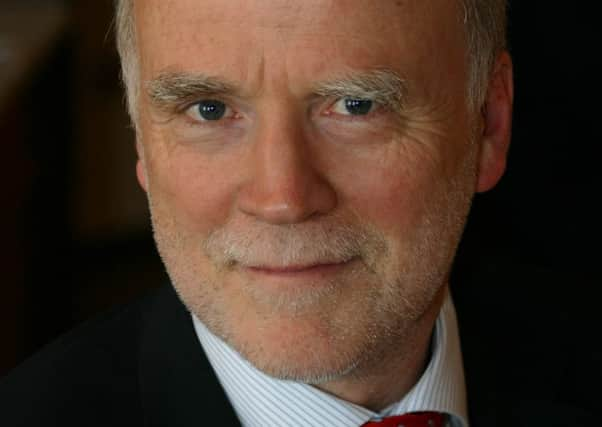Why Scotland must tighten focus on German opportunities


The main reason is that it is one of the few places in Europe at the moment which has money to spend. German citizens are currently sitting on more than €5 trillion (£3.8tn) of private wealth, which is mostly languishing in current accounts at very low interest rates.
So the questions are: how can Scottish companies and organisations best access this market and what will the Germans buy? These are increasingly important questions for Scotland plc, with the latest forecasts predicting flatlining growth levels through 2016.
Advertisement
Hide AdAdvertisement
Hide AdIn recent years I have been helping German companies do business in the UK and a few Scottish companies explore opportunities there, on the back of being the Scottish Government’s investment representative in Germany and Austria during most of the 1990s. The good news is that there are lots of existing connections between the two countries which have generated revenue and goodwill for the Scots. We urgently need to build on these foundations.
Germany is historically the third-biggest inward investor into Scotland – after the US and France – and is also Scotland’s third-largest export market. Only this week Germany’s Aquila Capital made a significant investment in Scotland’s timber market. Within Europe, Germany is by far the leading source of “tourist euros” with Germans spending over £170 million last year – Scotland’s number two overseas visitor market after the US. The whisky industry has, of course, played its part.
However, inward investment in Europe is declining and the UK is losing its attractiveness for international investors with threats of a Brexit and endless talk of austerity. Also, no government seems able to turn our trade deficit around despite repeated export campaigns and initiatives. And energy industries are struggling. If Scotland wants to avoid a future of being mainly a provider of holidays and alcohol we need a new strategy for trading with the continent and Germany in particular.
Actually the recipe is simple, at least initially. Explore. Do some research and also ask your friends the “daft laddie question” if they have any contacts in Germany. Then get on a plane to Berlin, Hamburg, Bremen, Düsseldorf, Frankfurt, Stuttgart or Munich. There are now direct flights to all these places in contrast to the 90s when there were none.
Personally, I would favour Bavaria where the goodwill towards the Scots is strongest and the economy, with a GDP three times that of Scotland, is motoring like a beemer. The state boasts headquarters of companies such as BMW, Siemens, Audi and Adidas and has become a centre for the digital economy. Just last month IBM announced a new 1,000-job global centre for the “internet of things” in Munich. The city, usually ranked third or fourth in the world for quality of life, has been twinned with Edinburgh since 1954. And, of course, there are 17 other twinnings between Scotland and the “Free State” including Glasgow-Nürnberg, Aberdeen-Regensburg and Dundee-Würzburg.
Once you have some understanding of how Germany works for your business then it is time to engage. What are the opportunities? This is a mature market so it is necessary to identify a niche product or improve on an existing service. An example could be the remarkable Scottish travel search web export Skyscanner. Although already extremely successful internationally, you could argue that it could generate even more business in Germany by establishing a presence and developing market-specific applications.
The flourishing Scottish tech sector, in combination with Scotland’s universities, law firms and consultancies, has the potential to be the spearhead of a new and successful British partnership with Germany. It is time for outward investment and flying the flag in Europe.
• David Scrimgeour MBE is a Scots lawyer now working as a strategy and business adviser in Germany for more than 25 years.